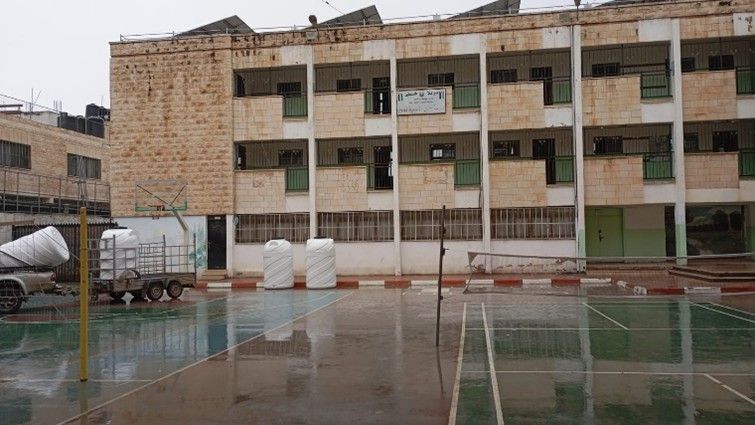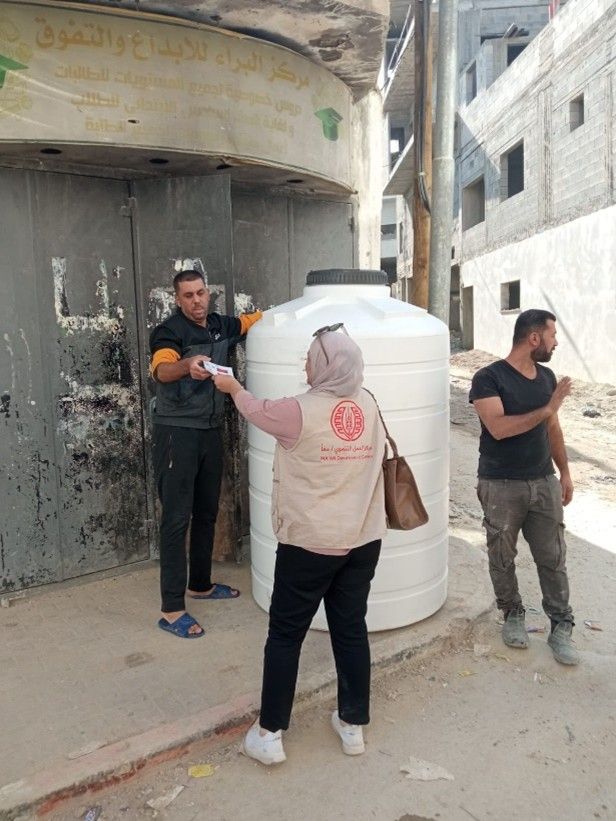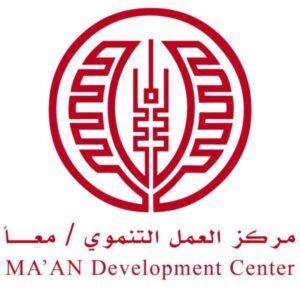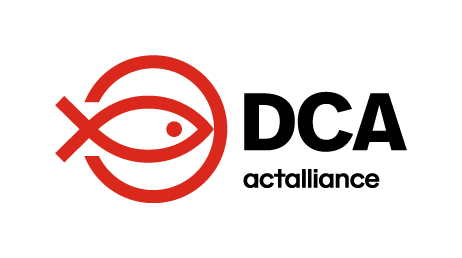The Issue
The project addressed the urgent Water, Sanitation, and Hygiene (WASH) needs of residents in Jenin city and its refugee camp on the West Bank, following a large-scale military operation conducted by Israeli forces in August 2024. This operation caused extensive infrastructure damage, including the destruction of approximately 20 kilometers of essential water, sewage, and communication networks, leaving around 35,000 residents with restricted access to basic water and sanitation services. Vulnerable groups such as women, children, the elderly, and individuals with disabilities were disproportionately affected. Many families face prolonged water shortages, sanitation challenges, and displacement, further exacerbating public health risks. An estimated 800 families in the eastern neighborhood of Jenin and 1,000 families in the camp remained without essential services, while schools and community centers host displaced populations.
The project was informed by a collaborative WASH assessment conducted with local and international partners, including UNRWA and the Palestinian Water Authority. Key interventions identified include water trucking, the provision of tanks for water storage, and the distribution of hygiene kits. These measures aimed to meet immediate humanitarian needs, mitigate the risk of disease outbreaks, and restore essential services, to ensure the dignity and resilience of affected populations during this crisis

The Project
The project addressed the critical WASH needs of affected families in Jenin city and its refugee camp through key interventions that ensured access to clean water, improved sanitation, and essential hygiene supplies.
Through water trucking, the project delivered 1,400 m³ of drinking and domestic water to 3,455 individuals, including six schools, hereby meeting the standards of 50 liters of water per person per day and 15 liters per student per day. This intervention provided immediate relief to families and schools struggling with severe water shortages.
Additionaly, a total of 340 hygiene kits, including essential items like soap, toothbrushes, and anti-lice shampoo, was distributed to vulnerable households, improving personal hygiene and mitigating the risk of disease outbreaks. Finally, the project provided 712 water storage tanks to households whose water storage systems were damaged, enabling them to safely store water to reduce dependency on emergency water distribution.

Implemented in collaboration with MA’AN, UNRWA, and the WASH Cluster, the project ensured a coordinated, efficient, and effective delivery of assistance to the most vulnerable, and addressrd urgent humanitarian needs while restoring dignity. The coordinated approach, involving both MA’AN, UNRWA, and the WASH Cluster, ensured alignment with humanitarian standards while minimizing duplication. The project contributed to stabilizing living conditions and fostering recovery for families devastated by the crisis.
The Change
The project significantly improved the WASH situation for vulnerable families in Jenin city and its refugee camp, as it addressed critical shortages in water, sanitation, and hygiene. By providing clean water through trucking, the project ensured that 3,455 individuals, including 2,532 students, gained immediate access to safe drinking and domestic water, reducing the risk of dehydration and waterborne diseases. Schools benefitted from sufficient water supplies, enabling a safer environment for education. The distribution of 340 hygiene kits directly enhanced the ability of families to maintain personal hygiene, crucial in preventing the spread of diseases in overcrowded and unsanitary conditions. Items like anti-lice shampoo also addressed immediate health concerns arising from poor living environments. The provision of 712 water storage tanks allowed affected households to safely store water, fostering greater independence and resilience while reducing reliance on emergency distributions.
The Results
The intervention successfully delivered 1,400 m³ of water, 712 water storage tanks, and 340 Hygiene Kits to affected families and targeted locations in Jenin city and camp. Based on qualitative feedback from community representatives, project team, and surveys, the beneficiaries reported improved access to clean water, reducing reliance on unsafe sources.
The Partner
DCA/NCA Palestine have a longstanding partnership with national partner MA’AN working in Gaza and the West Bank. MA’AN has implemented a variety of WASH, Protection, Food security and Cash activities through its partnership with DCA/NCA Palestine, particularly throughout this emergency

Our Work
DCA and NCA work in Palestine to support Palestinian communities in Gaza and the West Bank, including East Jerusalem to be economically and socially resilient and active participants in decision making processes affecting their lives. This includes advocating for respect for international humanitarian law, human rights and a just peace. Since October 7, 2023, DCA/NCA has taken part in the humanitarian response to the war in Gaza.
About the project
Full title: WASH Emergency Response to affected people in Jenin City and Camp – 2024
Period: September 2024 to December 2024
Partner: MA’AN Development Center
Funding: 1,000,000 DKK
Expected number of people reached: 9,437 individuals
Main Donor: The project was funded through DCA Collected Funds


